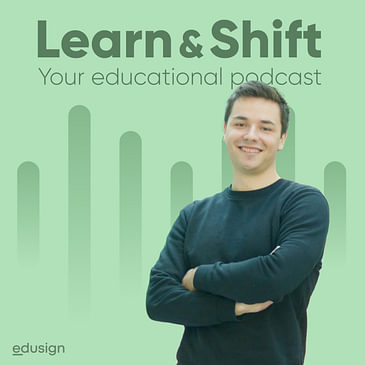In this interview with Brad Benedict, a State Workforce Advisor at Transfr, we gain valuable insights into the future of education and the transformative power of virtual reality (VR) in the learning process.
Brad, a passionate advocate for education and training, started from humble beginnings and, over time, developed a deep-rooted commitment to helping others succeed in their chosen careers. His journey led him from running his own restaurant to a pivotal role in ceramic manufacturing, where he played a key role in education and training.
Transfer, the company Brad works for, has been at the forefront of disrupting education and training since 2017. They utilize virtual reality and immersive simulations to provide hands-on job training and career exploration experiences. These simulations are tailored to various industries, including skilled labor careers like electricians, plumbers, auto mechanics, healthcare, and construction.
One of the most compelling aspects of Transfer's approach is how it addresses the critical issue of career exploration. Many high-paying jobs remain hidden from plain sight in industrial parks and other less-visible settings. Transfer's VR experiences expose students and job seekers to these careers, opening their eyes to previously unconsidered opportunities.
Brad highlights the rewarding experiences he's had working with justice-involved youth. By providing them with a glimpse of alternative career paths through VR, these individuals have found hope and motivation to change their lives for the better. Transfer's technology offers a tangible goal to work towards, a powerful tool for anyone seeking a fresh start.
He also touches on the role of AI in their VR-based training, with their digital coach, Simon, incorporating content from subject matter experts to enhance the learning experience. Furthermore, data tracking helps educators understand students' progress and customize their learning experiences.
When discussing the future of education, Brad predicts that technology will play an even larger role in classrooms. With each generation being more tech-savvy, more technology will be integrated into the learning process. He emphasizes the importance of diversifying your sources of knowledge, as the more input you have, the more varied your perspective becomes.
For those interested in further exploration of education and poverty, Brad recommends reading "A Framework for Understanding Poverty" by Ruby K. Payne. This book provides valuable insights into the experiences of individuals from low-income and poverty-stricken backgrounds and offers strategies for addressing their unique challenges.
Finally, Brad underscores the importance of using social media platforms like LinkedIn for networking, learning, and growth. He believes that LinkedIn is a positive space where professionals can connect and share knowledge.
As we conclude our discussion with Brad Benedict, we're left with a deeper understanding of the transformative potential of VR and the role of technology in shaping the future of education. Brad's dedication to helping individuals find their passion and unlock their potential through VR training is both inspiring and promising for the world of education and workforce development.


